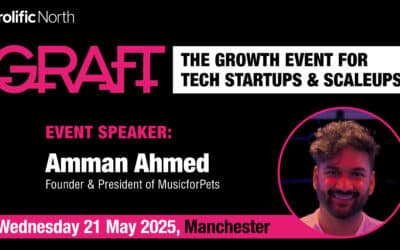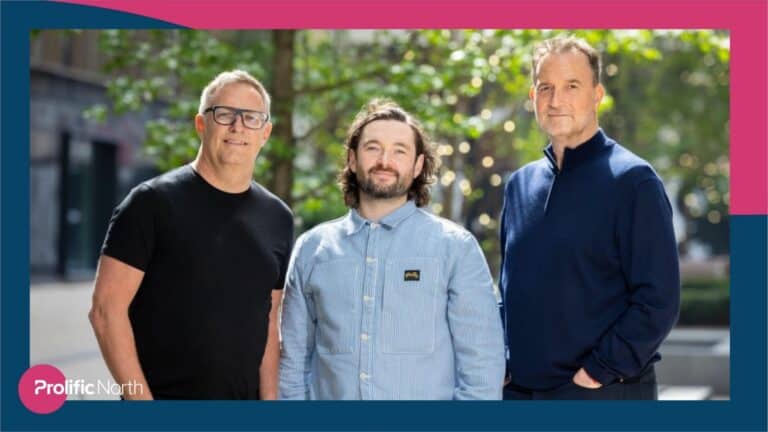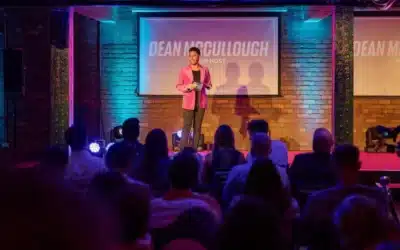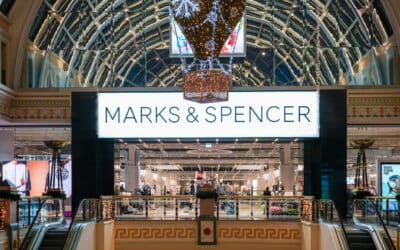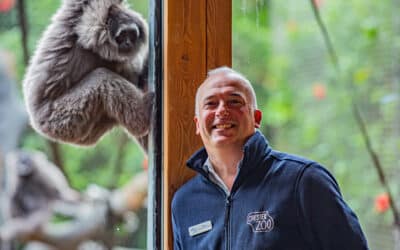Manchester-based GigPig, a live music management and booking platform, set out its lofty ambitions to revive the music industry as the “Spotify for gigging musicians” three years ago.
At the time, co-founder and CEO Michael Forster proudly shared how the GigPig platform had already attracted nearly 2,000 artists and over 200 venues.
Fast forward to today, and those early milestones have blossomed into something even bigger: over 10,000 artists are now using the music marketplace platform, around 1,000 venues are active on the platform, and revenues at the company are set to soar to £1.3m this year.
It’s been a whirlwind few years for GigPig, so as part of Prolific North’s deep dive into the future of Northern tech, we paid a visit to the company’s Manchester HQ to find out how the team is scaling up, and why their fight to save live music has never felt more urgent.
READ MORE: Is a ‘start-up mentality’ in the UK holding back potential billion-dollar businesses in the North?
Inside a cosy office space in the heart of Manchester, we’re welcomed by co-founder Kit Muir-Rogers and his dog, Elvis. It’s a fitting setting for a company that’s passion for music hasn’t changed over the years.
“It was a bit like Frankenstein’s monster when we started,” Muir-Rogers laughs, recalling GigPig’s scrappy earlier days. “From an idea on a PDF, our small team at the time went around to as many venues as we could just to show them what we could do.”
GigPig’s mission has always remained the same: matching venues to live artists, cutting out the middlemen to help both thrive.
For venues, the platform offers “all the tools” needed to discover, book and manage live gigs for up to 90% less than the standard industry cost. As for live performers, it’s still a free platform to find, play and get paid for gigs – and that won’t be changing anytime soon.
“Everything we do is based around making an artist’s life easier and more efficient so they can focus on what they’re good at: their art.”
But GigPig’s success story is set against a worrying backdrop. Across the UK, the live music ecosystem is shrinking fast.
Pre-pandemic, there were around 106,000 licensed venues. Today, that number has shrunk to 93,000, and it’s projected to fall even further. Research by Capital on Tap suggests that by 2030, half of the UK’s bars, pubs, and nightclubs could be gone.
READ MORE: Northern tech firms consider moves to US as funding frustrations mount in the UK
“The rate of closures is alarming, especially for grassroots venues. They’ve got a really challenging road ahead,” he explains. “If the venues close, it’s not just about losing spaces – it’s about losing culture, losing a community. It’s frightening.”
And if those spaces vanish, so will the next headliners of tomorrow.
“People think artists just appear on the main stage but barely anyone is walking into a headline spot without spending way more than 10,000 hours gigging.”
“From playing in their bedrooms to garages, then at the pubs and bars, that’s where the hard work happens before they even get to the music labels. The labels aren’t nurturing them anymore.”
Without accessible, affordable places to perform, future stars following in the likes of Sam Fender or Lewis Capaldi’s footsteps may never be discovered. Newcastle’s rising star Sam Fender kicked off his musical career in the pubs over in North Shields.
“We really do believe that every venue has the opportunity to be a stage,” he says. “By lowering that barrier to entry, we can collectively grow the music industry and support both sides to make money for not just themselves but for the economy.”
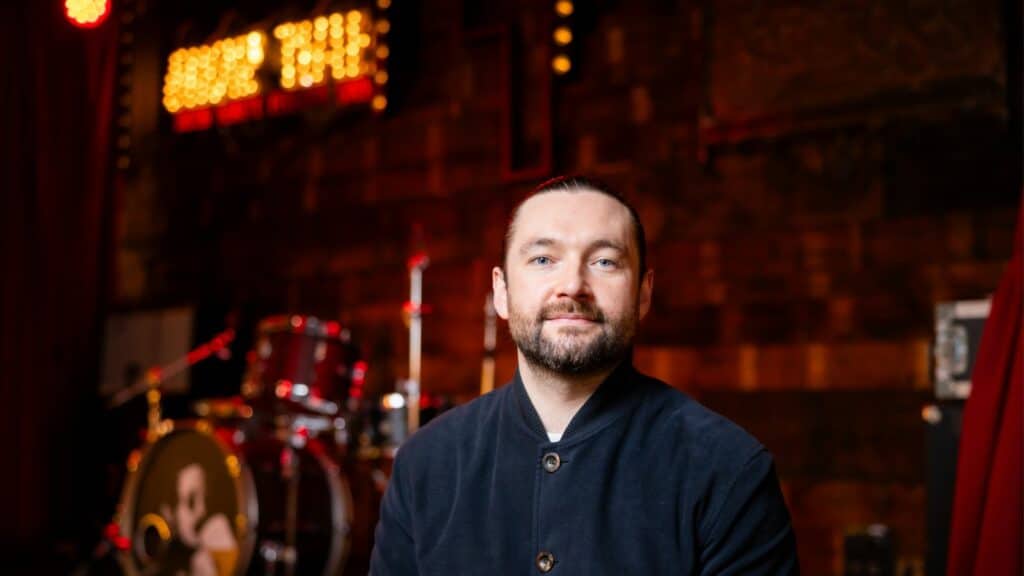
That sense of urgency fuels everything GigPig is building. The company’s Live Music Index, developed in partnership with the NTIA, has already revealed that 87% of venues say live music improves atmosphere and guest satisfaction, while 79% say it increases revenue and footfall.
“Music is a core driver,” he explains. “We’re giving venues the tools to see what they couldn’t before and that’s the real, measurable impact of live music.”
And the results speak for themselves. GigPig is now facilitating around 60,000 gigs a year, saving venues an estimated £4m in operating costs and generating £14.5m for musicians.
“It was nearly lights out for us”
But the road to scaling hasn’t always been smooth for GigPig. The past six months have been critical in proving product market fit, plus a healthy dose of persistence.
“There was a year where everyone said it would never work,” he admits. “We were getting laughed at. But we kept going, because we knew how big this could be.”
At one point, a major investor pulled out at the last minute during an investment round.
“There were many times when it was nearly lights out for us, despite all the graphs pointing upwards and the growth metrics were there,” he reflects. “We had challenges with an original investor that couldn’t come through with the money when an investment round closed. But every challenge has made us stronger.”
“The amount we’ve learnt has been insane over the past three years. Being a founder on the start-up journey is such a privilege. It’s hard, it’s rough, it’s not a nine to five, it’s all consuming. If you really believe in what you’re building, it’s just unbelievable.”
Now, GigPig is preparing for a Series A raise next year and plans are already in motion for international expansion, starting with Ireland later this year as a springboard into Europe. But being a Manchester-founded business will always be GigPig’s foundation.
“We’re building something really, really big here. We’re building it in Manchester, and we’re going to grow across the world, and we’re going to change the way that music’s consumed.
“As we scale, Manchester is the perfect place to be. We’re midway in the UK, geographically. There’s so much going on but now we’re operating nationally. I do think this will always be where we’re based.”
Looking ahead, he is keen to offer advice for other Northern founders navigating the start-up world.
READ MORE: From Pet Sounds to Hollywood Hills – meet the unconventional founder headlining GRAFT
“Really believe in what you’re building from day one,” he says. “If you don’t absolutely love it, and if you’re not solving a problem that matters, then don’t bother. Because this will consume your life. You’ll live and breathe it.”
Despite the inevitable challenges any founders might face growing and scaling a business, it’s a life they wouldn’t swap for anything.
“I’ve wanted to be a musician since I was four years old,” he says. “Music is everything to us. Seeing the good this can have in artists’ lives is what drives us.”
And as they continue their mission to democratise the music industry, he’s clear about where real change will come from.
“You’re never going to change the music industry from the top down as it is so corrupted at the top. We have to go bottom-up by supporting grassroots venues, nurturing artists, and building communities. if we can get the artist buy-in on what the mission and the journey is, then I honestly believe that we can change the music industry for the good, from the bottom up.”
Because without that? As Muir-Rogers puts it bluntly: “The music stops”.



